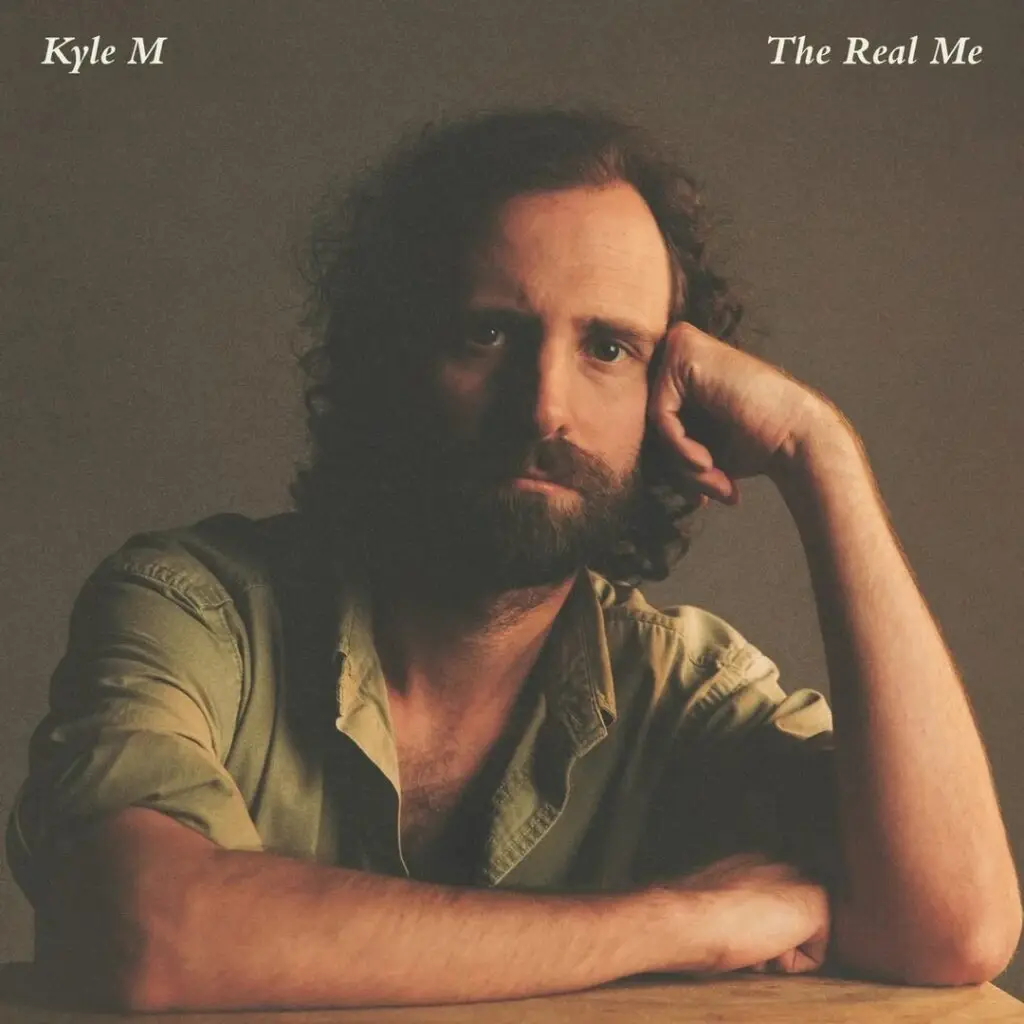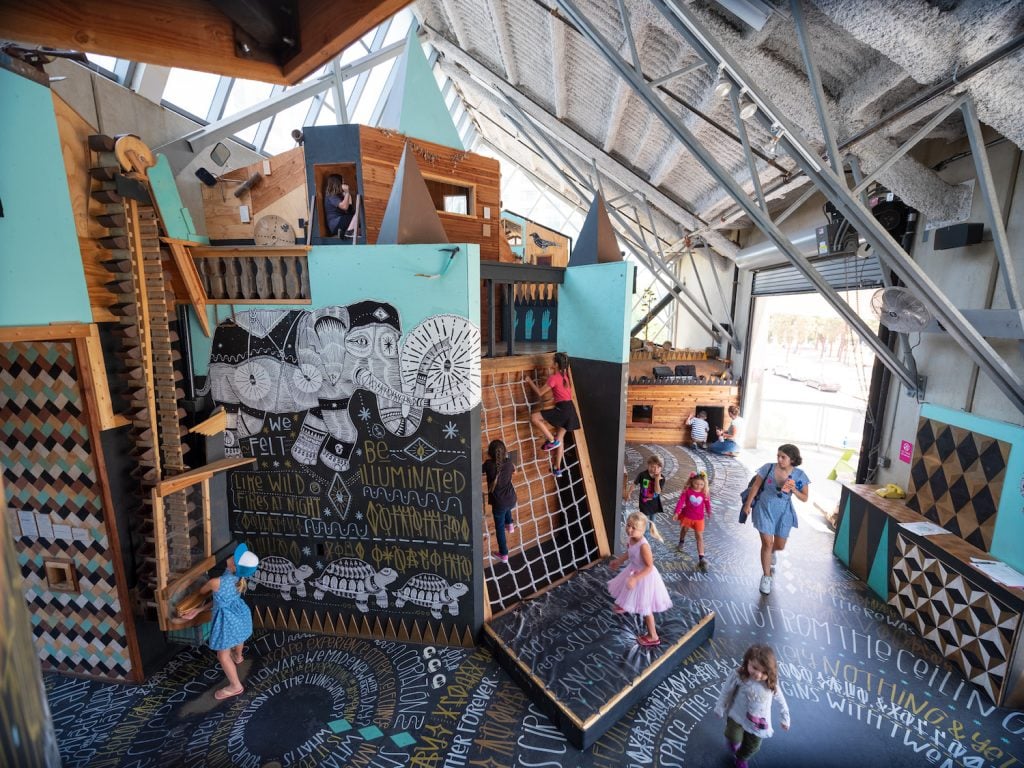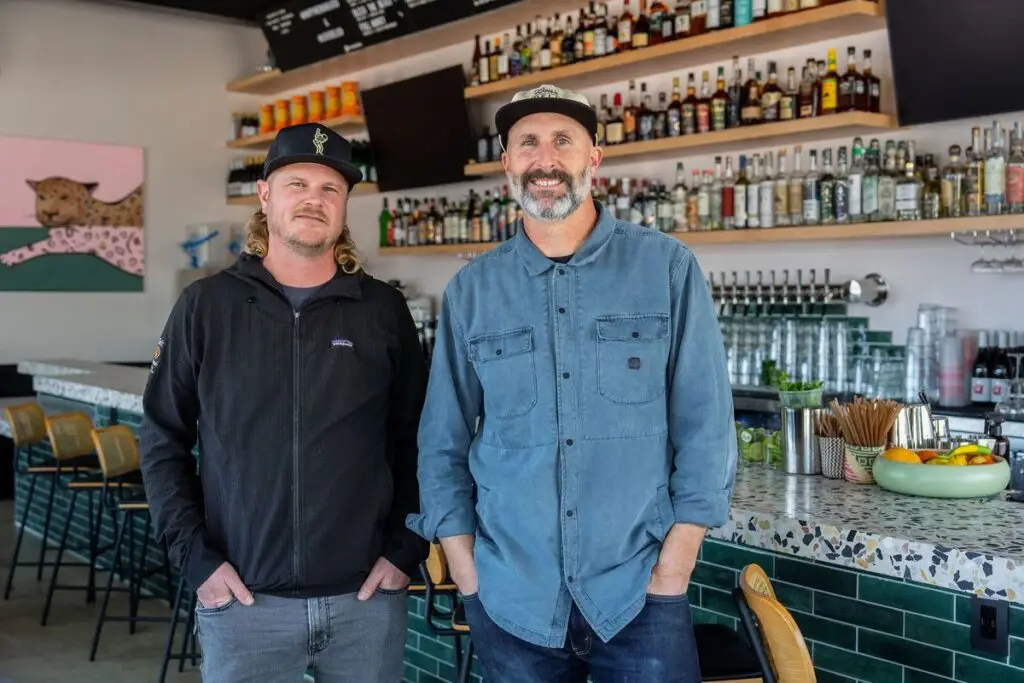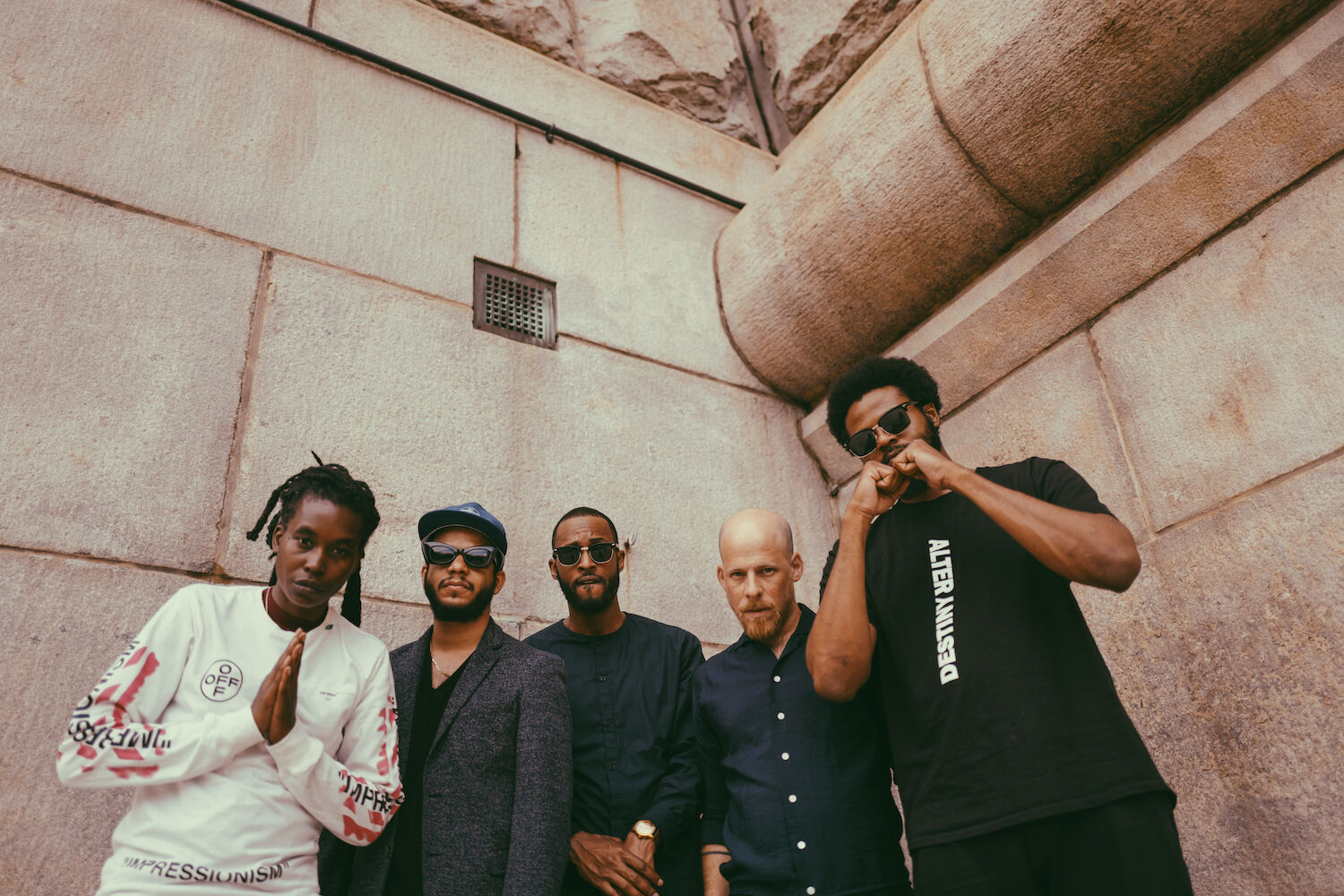
Five-piece jazz poetry ensemble Irreversible Entanglements
Bob Sweeney
At a time when it felt like music festivals were on the cusp of extinction, a UC San Diego professor was just getting his warmed up. In the spring of 2021, with live-music lockdowns still in effect, UCSD hosted the inaugural Blacktronika: Where I Stand festival. It was spearheaded by King Britt—a Philadelphia- bred DJ and producer famed for his work with Digable Planets in the ’90s (and even performed on the Grammys with the band) and now is an assistant professor of computer music at the La Jolla campus.
The university’s music department website said the artists were chosen to reflect “the intersection of technology, science fiction, and music’s foundation within the African Diaspora.” Its first installment was a live stream featuring performances from conceptual sound artist Maria Chavez, soul improviser Lisa Vasquez, and Britt, who says the first-of-its-kind event reached audiences well outside of UCSD’s own backyard.
“The online festival was absolutely flawless,” he says. “People tuned in globally, and we kept the performances up for one week.”
The Blacktronika festival returns on October 29 and is dubbed “Where I Stand.” The second installment of the fest will happen live at the brand-new Epstein Family Amphitheater, which is a 2,650-capacity theater holding its inaugural performances earlier in October. The venue is named after philanthropists Daniel and Phyllis Epstein, who gifted UCSD $10 million to build it.
With the transition from a virtual festival to a proper in-person live experience, there’s more flexibility to showcase even larger ensembles, like the five-piece jazz poetry group Irreversible Entanglements.
The festival grew out of a lecture course that Britt started two years ago via Zoom, titled Blacktronika: Afrofuturism in Electronic Music. The curriculum explores pioneering people of color in electronic music and has included guest lectures from the likes of drum ‘n’ bass artist Goldie and Questlove of The Roots.
The class also has a club night component held at UCSD’s The Loft so Britt’s students can experience “the club as a safe space for freedom of expression.” The course has continued to grow steadily since its introduction, and as important as the in-person club and festival experience is, Britt still keeps the class on Zoom so his students can get the best possible headphone experience.
“The Blacktronika course started in Spring 2020 with 30 students and is now up to 300,” he says. “I continue to teach it on Zoom because this music won’t translate correctly in a lecture hall. Which is why we started the club night—to truly experience dance music the way it should.”
The lineup of artists for “Where I Stand” is stacked with a number of diverse and innovative artists, including progressive art-pop artist Xenia Rubinos, experimental hip-hop group Chimurenga Renaissance, and soul jazz singer and composer Georgia Anne Muldrow. The festival will also feature 5hz, which Britt refers to as “a UC San Diego super band,” comprising grad students who have previously been involved with Blacktronika.
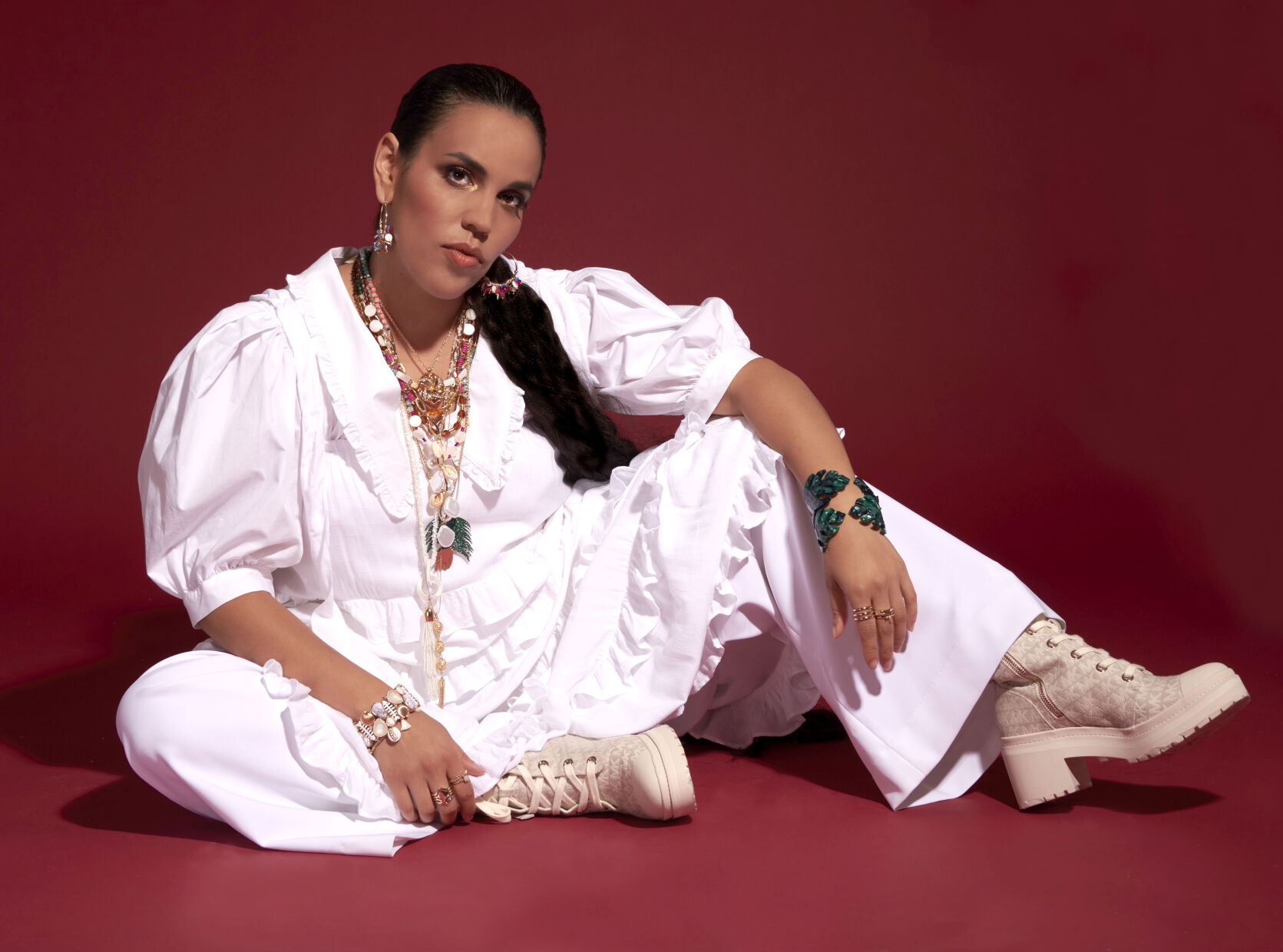
Art-pop artist Xenia Rubinos
Michelle Arcila
Musically, they each represent a wildly different sonic approach, but what they share in common is the central, core idea behind Blacktronika.
“All of the performers are rooted in ancestral history and lineage,” Britt says of his classes, which draws connections between the Dogon tribe of Mali to the Afrofuturist jazz of the Sun Ra Arkestra— whose saxophonist, Marshall Allen, was a Buffalo soldier in World War II—on through Egyptian composer and ethnomusicologist Halim El-Dabh’s earliest tape loop experiments in the ‘40s and the development of house and techno in Chicago and Detroit in Black communities in the ‘70s and ‘80s. “They have the codes and energy handed down from generations of indigenous freedom fighters. This goes into the compositions, sounds, and lyrics, encompassing many different cultures all sharing a love for electronics with acoustic instruments.”
King Britt himself has shared the stage with several of the artists performing at the festival, including Xenia Rubinos and poet/artist Moor Mother of Irreversible Entanglements. And though attendance is open to everyone—not just students— the music is nonetheless tied to the curriculum in much the same way the club night provides a more animated alternative to the classroom. It’s education through rhythm and movement.
“[Students] get to feel and move their bodies to the music that they are studying about and think about how that music comes out of socio-political contexts,” Britt says, “which will help them think about it differently.”




